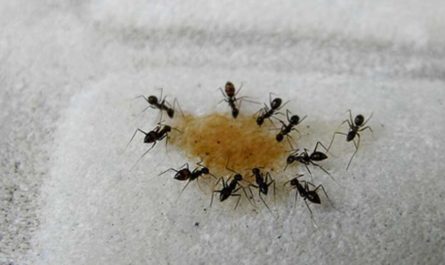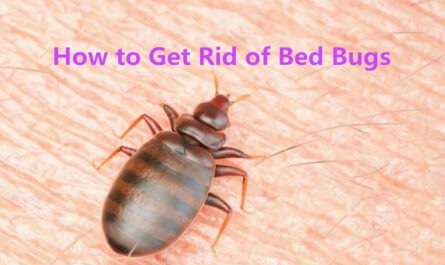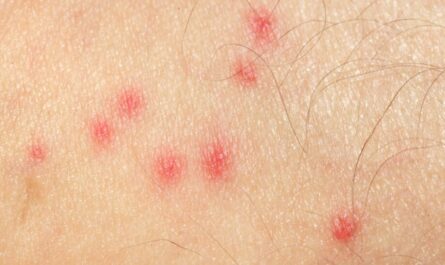In the ever-evolving world of hair care, one ingredient has been gaining widespread popularity for its versatile and effective properties: tea tree oil. Derived from the leaves of the Melaleuca alternifolia plant, this potent essential oil has been used for centuries in traditional medicine. Its benefits for hair and scalp health are nothing short of remarkable. Whether you’re struggling with dandruff, dry scalp, or thinning hair, tea tree oil may just be the natural solution. In this comprehensive guide, we’ll explore 14 compelling benefits of incorporating tea tree oil into your hair care routine.
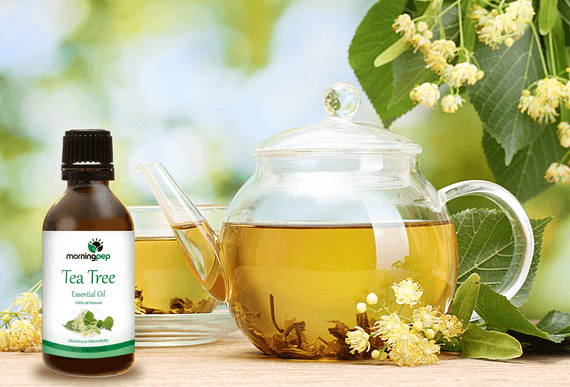
Health Benefits of Tea Tree Oil For Your Hair And Scalp
1. Say Goodbye to Stubborn Dandruff
One of the most well-known benefits of tea tree oil is its ability to combat dandruff effectively. Dandruff is caused by an overgrowth of a fungus called Malassezia. It can lead to an itchy, flaky scalp and embarrassing white flakes on your shoulders. Tea tree oil’s antifungal and antimicrobial properties make it a powerful ally in controlling dandruff.
A study published in the Journal of the American Academy of Dermatology found that a shampoo containing 5% tea tree oil was as effective as a leading dandruff shampoo in reducing dandruff severity. Many users have reported significant improvements in their dandruff after incorporating tea tree oil into their hair care routine.
2. Soothe Dry, Itchy Scalp
If you’ve ever experienced the discomfort of a dry, itchy scalp, you know how frustrating it can be. Tea tree oil’s anti-inflammatory and moisturizing properties can provide much-needed relief. Its ability to soothe irritation and hydrate the scalp can help alleviate dryness, flakiness, and itchiness.
One user shared their experience: “I’ve struggled with a dry, itchy scalp for years, and nothing seemed to work until I started using a tea tree oil-infused hair mask. It’s like a miracle worker – my scalp feels refreshed, and the itchiness has subsided significantly.”
3. Promote Healthy Hair Growth
Hair loss and thinning can be distressing, but tea tree oil may help stimulate hair growth and prevent further shedding. Its antimicrobial properties can help keep the scalp clean and free from bacteria and fungi that can clog hair follicles and impede growth.
Additionally, tea tree oil’s ability to increase blood circulation to the scalp can nourish hair follicles and encourage healthy hair growth. A study published in the Journal of Ethnopharmacology found that tea tree oil exhibited hair growth-promoting effects in mice. This suggests its potential for promoting hair growth in humans.
4. Banish Buildup and Unclog Hair Follicles
Product buildup, excess oil, and environmental pollutants can clog hair follicles, leading to dull, lifeless hair and potential scalp issues. Tea tree oil’s clarifying properties can help remove buildup and unclog follicles. This allows for better nutrient absorption and healthier hair growth.
Many users have reported that incorporating tea tree oil into their hair care routine has left their hair feeling lighter, fresher, and more voluminous.
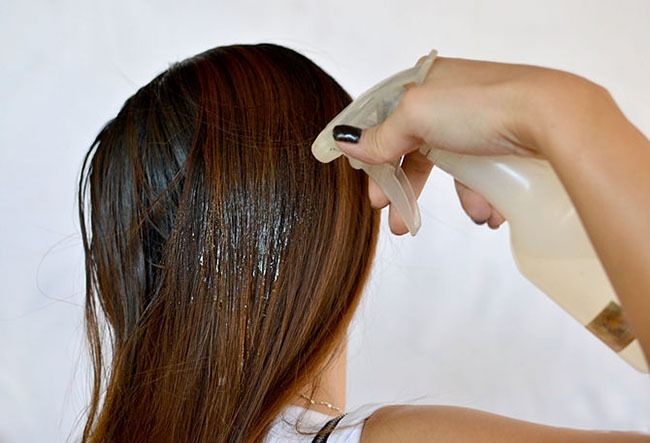
5. Strengthen and Nourish Hair Strands
Tea tree oil is rich in essential nutrients, including vitamins, minerals, and antioxidants, that can nourish and strengthen hair strands from the inside out. Its ability to penetrate the hair shaft can help repair damage, reduce breakage, and improve overall hair health.
One user shared their experience: “After using a tea tree oil hair mask regularly, I’ve noticed a significant reduction in split ends and breakage. My hair feels stronger and more resilient, even after heat styling.”
6. Enhance Shine and Manageability
Dull, lifeless hair can be a frustrating issue, but tea tree oil’s natural conditioning properties can help restore shine and manageability. Its ability to balance sebum production can help tame frizz and flyaways, leaving your hair looking sleek and glossy.
Many users have reported that incorporating tea tree oil into their hair care routine has left their hair feeling softer, smoother, and more manageable.
7. Soothe Scalp Irritation and Inflammation
Tea tree oil’s anti-inflammatory properties can provide relief for scalp irritation and inflammation caused by various factors, such as harsh hair products, environmental stressors, or underlying skin conditions like psoriasis or eczema.
One user shared their experience: “I’ve struggled with scalp psoriasis for years, and tea tree oil has been a game-changer. It helps soothe the inflammation and itchiness, allowing me to manage my condition more effectively.”
8. Protect Against Environmental Stressors
Environmental factors like pollution, UV radiation, and harsh weather conditions can take a toll on your hair and scalp health. Tea tree oil’s antioxidant properties can help protect your hair and scalp from oxidative stress and damage caused by these environmental stressors.
By incorporating tea tree oil into your hair care routine, you can create a protective barrier against harmful environmental factors. This ensures your hair and scalp remain healthy and resilient.
9. Refresh and Revitalize Oily Hair and Scalp
If you struggle with an oily scalp and greasy hair, tea tree oil’s astringent properties can help regulate sebum production and leave your hair feeling refreshed and revitalized. Its ability to absorb excess oil can help extend the time between washes. This makes it a valuable addition to your hair care routine.
Many users have reported that using tea tree oil-infused hair products has helped them achieve a fresher, cleaner look and feel, without stripping their hair of its natural oils.
10. Enhance Hair Color Vibrancy
For those with color-treated hair, tea tree oil can be a valuable ally in preserving the vibrancy and longevity of your hair color. Its ability to cleanse and remove buildup can help prevent premature fading and ensure your hair color remains vibrant and radiant for longer.
One user shared their experience: “As someone with color-treated hair, I’ve noticed a significant difference in the longevity of my hair color since incorporating tea tree oil into my routine. My color looks fresher and more vibrant for longer.”
11. Promote Scalp Detoxification
Our scalps are constantly exposed to environmental pollutants, product buildup, and excess sebum, which can lead to clogged follicles and scalp issues. Tea tree oil’s detoxifying properties can help remove these impurities. This can promote a healthier scalp environment and allow for better hair growth and overall scalp health.
Many users have reported feeling a refreshing tingle and a sense of cleanliness after using tea tree oil-infused hair products.
12. Reduce Scalp Inflammation and Redness
Scalp inflammation and redness can be caused by various factors, including harsh hair products, environmental stressors, or underlying skin conditions. Tea tree oil’s anti-inflammatory properties can help soothe and calm inflamed, irritated scalps, reducing redness and discomfort.
One user shared their experience: “I’ve struggled with scalp redness and irritation for years, and tea tree oil has been a game-changer. It helps calm the inflammation and reduce the redness, leaving my scalp feeling soothed and comfortable.”
13. Improve Hair Texture and Manageability
Tea tree oil’s ability to balance sebum production and remove buildup can help improve hair texture and manageability.
You can regulate oil production and keep the scalp and hair follicles clean. Tea tree oil can help prevent greasy, limp hair and promote a more voluminous, manageable texture.
Many users have reported that incorporating tea tree oil into their hair care routine has left their hair feeling lighter, bouncier, and easier to style.
14. Enjoy a Refreshing, Invigorating Scalp Massage
Incorporating tea tree oil into your scalp massage routine can provide a refreshing and invigorating experience. Its crisp, refreshing aroma can help invigorate the senses. Its tingling sensation can promote increased blood circulation to the scalp, encouraging healthy hair growth.
One user shared their experience: “I love incorporating tea tree oil into my scalp massage routine. The invigorating aroma and tingling sensation leave my scalp feeling refreshed and energized, and I’ve noticed an improvement in hair growth and overall scalp health.”
How to Use Tea Tree Oil For Your Hair And Scalp?
1. Direct Application: Targeted Nourishment
One of the most effective ways to reap the benefits of tea tree oil is through direct application to the scalp. However, it’s crucial to dilute this potent oil with a carrier oil like coconut or castor oil before application.
Gently massage the diluted oil into your scalp, increasing blood flow and allowing the tea tree oil to work its magic. Leave it for a few minutes before rinsing for best results. This targeted approach ensures that your scalp receives the full benefits of tea tree oil’s therapeutic properties.
2. Shampoo Infusion: Convenient Haircare
If you prefer a more convenient approach, consider adding a few drops of tea tree oil to your regular shampoo and washing your hair as usual. This method allows you to enjoy the benefits of tea tree oil without any extra steps in your routine. As you lather and rinse, the tea tree oil will work its magic, leaving your scalp refreshed and revitalized.
Alternatively, you can opt for pre-formulated shampoos, conditioners, or hair masks that already contain tea tree oil, especially if you have a sensitive scalp. These products are formulated with the right concentrations, ensuring optimal results without the risk of irritation.
3. Targeted Treatments: Addressing Specific Concerns
For specific scalp concerns, tea tree oil can be used as a targeted treatment. For instance, if you’re battling dandruff, apply shampoo with 5 percent tea tree oil to your scalp and lather for 3 minutes daily for 4 weeks. This concentrated approach can help alleviate stubborn dandruff and restore a healthy scalp.
While tea tree oil doesn’t directly promote hair growth, it can prevent hair loss by keeping the scalp healthy and free of fungal infections. By maintaining a balanced, nourished scalp environment, you create the ideal conditions for healthy hair growth and retention.
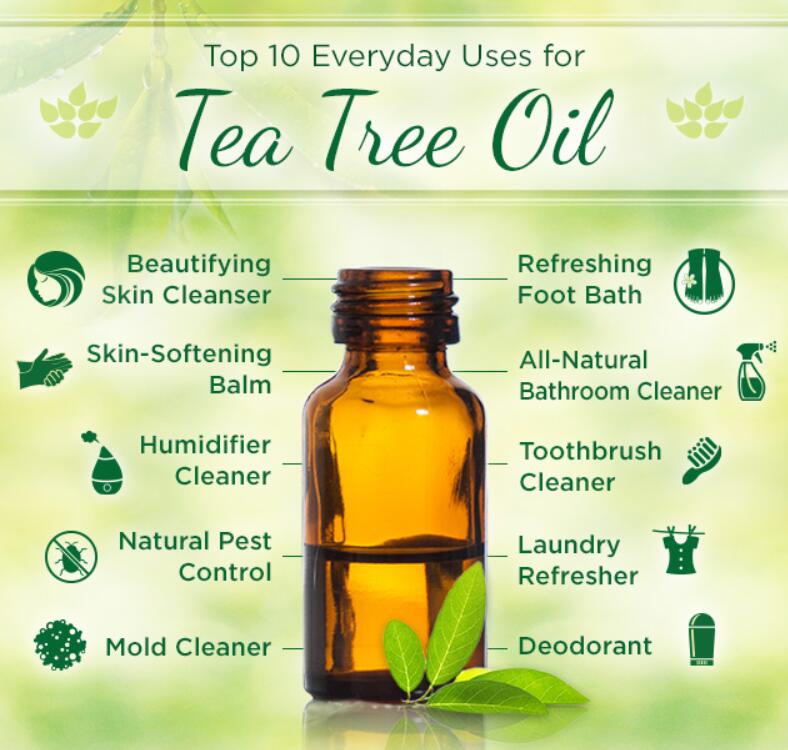
FAQs
Here are some common questions and answers about how to use tea tree oil for hair and scalp:
Q: Can I apply tea tree oil directly to my scalp?
A: No, you should never apply undiluted tea tree oil directly to your scalp or hair. The oil is very potent and can cause irritation, dryness, and potential allergic reactions if used without diluting it first. Always mix tea tree oil with a carrier oil like coconut, olive, or almond oil before applying it to your scalp and hair.
Q: How much tea tree oil should I use in my hair treatment?
A: A general guideline is to use 5-10 drops of tea tree oil per 1 tablespoon of carrier oil. Start with the lower amount first, especially if it’s your first time using tea tree oil, to test your sensitivity.
Q: How often can I use tea tree oil on my hair and scalp?
A: Tea tree oil treatments can be done 1-2 times per week. However, if you have a specific scalp condition like dandruff or seborrheic dermatitis, you may need to use it more frequently until the issue is under control.
Q: Can tea tree oil help with hair growth?
A: While tea tree oil itself doesn’t directly promote hair growth, it can help create a healthy scalp environment that’s conducive to hair growth. By keeping the scalp clean and free from buildup, hair follicles can function properly to produce strong, healthy strands.
Q: How long should I leave tea tree oil on my scalp?
A: For a scalp massage treatment, leave the diluted tea tree oil mixture on your scalp for 10-15 minutes before rinsing. For an overnight treatment, such as for lice, you can leave it on for several hours or overnight.
Q: Is tea tree oil safe to use during pregnancy or breastfeeding?
A: It’s best to consult with your healthcare provider before using tea tree oil if you are pregnant or breastfeeding, as there is limited research on its safety during these times.
Q: Can I use tea tree oil on color-treated hair?
A: Yes, tea tree oil is generally safe to use on color-treated hair. However, it’s always a good idea to do a strand test first to ensure that the oil doesn’t cause any unwanted color changes or damage to your hair.
Q: How long does it take to see results from using tea tree oil on the scalp?
A: The time it takes to see results can vary depending on the specific issue you’re trying to address. For conditions like dandruff or scalp irritation, you may notice improvements within a few weeks of consistent use. For hair growth or lice treatment, it may take several weeks or months to see significant results.


